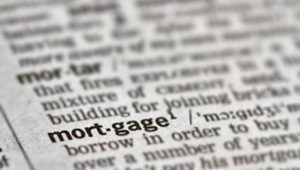A
adjustable-rate mortgage (ARM) A mortgage loan with an interest rate that changes during the loan term based on the adjustment period.
amortization A loan calculation that shows how principal and interest are paid off over a set period of time.
amortized A loan in which the payments are spread out over a set period of time.
annual percentage rate (APR) The annual cost of a mortgage loan is stated as a percentage of the loan amount. It helps compare the overall price of different loans.
appraisal A professional opinion of the market value of a property.
appreciation When the value of a home or property increases in a rising market.
assessment fees A tax or charge to homeowners for public services or improvements that benefit their property. asset An item of value that you own.
association fees Required payment is charged to association members for the upkeep and management of the shared property.
automated underwriting A computer-based method that lenders use to process loan applications and to recommend whether to approve the loan.
B
balloon payment It occurs when the balance of the loan has to be paid in full. It’s usually paid by refinancing or taking out a mortgage.
buyer’s agent A broker or agent who represents only the buyer.
C
capacity The ability to earn enough income to afford mortgage payments and other living expenses.
capital The funds were available for the upfront costs of homeownership, such as the down payment and closing costs.
carbon monoxide A colorless, odorless, and deadly gas that can be produced by home furnaces and other appliances that use combustion.
charge-offs An accounting term is used when the creditor does not expect to collect the balance owed on an account.
clear title A title that is free of liens and any claims against the property.
closing costs Fees and expenses paid by you and the seller for the property’s purchase, sale, or financing.
closing disclosure A document required by the Real Estate Settlement Procedures Act that itemizes services and charges relating to loan closing and the transfer of property. It also shows the annual percentage rate and finance charges and discloses other essential facts about your loan.
collateral The home will serve as a guarantee of repayment for the loan.
comparative market analysis A written analysis of comparable homes currently for sale or recently sold in the surrounding area.
conforming loan A type of conventional loan that meets the underwriting guidelines established by Fannie Mae and Freddie Mac. These tend to have lower interest rates but less flexibility for borrowers who don’t meet loan requirements.
consumer statement A consumer’s explanation of specific information that appears on their credit report.
contingency addendum A legally-binding clause added to a purchase agreement states specific conditions that must be met within a set amount of time. If the needs aren’t satisfied, the contract can be canceled. contract for deed An agreement to buy a home from the seller while the seller retains the legal title and rights to the property.
conventional loan Any mortgage that is not government-insured or guaranteed. These loans are made by private lenders, such as banks and credit unions.
covenants, conditions, and restrictions (CC&Rs) Specific agreements or regulations that are legally enforceable and must be followed by the homeowner and future owners.
credit A way to buy products or services now and pay for them later.
credit history A 7- to 10-year history of your record of payment for credit obligations, used to determine how likely you are to repay debt.
credit report A record of your credit history and current credit status. credit reporting bureau (agency) A private record-keeping company that collects information about how people manage their credit.
credit score A number based on a credit report shows lenders how likely you are to repay debt. creditor Any person or company to whom money is owed.
D
Debt Management Plan A structured long-term repayment plan for those having major trouble with debt, administered by a credit counseling agency.
debt-to-income (back-end) ratio The maximum percentage of your gross monthly income can be spent on the mortgage payment and all other debts.
deed A legal document that formally transfers ownership of property from the seller to you.
default Failure to meet financial obligations, which can result in the lender foreclosing on the property.
delinquency When the borrower becomes overdue in payment as required by the mortgage loan.
depreciate When the value of a home or property decreases. (Appreciation is the opposite.)
discretionary income Available income is not used to pay expenses.
down payment The amount you pay for your home that is not financed with the mortgage loan.
dual agent A broker or agent who represents both you and the seller.
E
earnest money (deposit) A deposit is made at the time of the purchase agreement to demonstrate to the seller that you’re serious about buying the home.
eminent domain The right of the government to seize private property for public use.
energy audit Determines the energy efficiency of a home and ways to improve it.
energy efficient Having features that reduce the use of electrical or heating power. For example, insulation, double-pane windows, high-efficiency furnace.
equity The amount of ownership you have in your home. It’s estimated by subtracting the balance of the mortgage loan from the current market value.
escrow account A particular account used to hold monthly payments toward annual property taxes, homeowners insurance, and, if applicable, mortgage insurance.
F
facilitator A real estate agent usually helps complete the purchase agreement when the buyer has decided not to use a buyer’s agent.
Federal Housing Administration (FHA) loan A type of government loan that features flexible credit standards and a low minimum down payment but comes with a mortgage insurance premium (MIP).
fixed expense An expense that does not change or changes only a little.
fixed-rate loan A mortgage loan with an interest rate that remains the same for the entire term of the loan. The principal and interest are fixed.
flexible expense An expense that can be controlled and adjusted.
for sale by owner (FSBO) A property that is for sale by the owner without the assistance of a real estate agent or broker.
force-placed insurance If you fail to insure your home, the lender has the right to buy and charge you for insurance to cover their interest in the house.
foreclosure The legal process allows the lender to own and sell a home because the borrower did not meet the mortgage terms.
G
government-sponsored enterprise (GSE) A financial services corporation created by the U.S. Congress to enhance the flow of credit to the housing market.
grace period The period of time after the due date that the loan servicer can receive the mortgage payment before they charge a late fee.
gross income Income before taxes or deductions is taken out.
H
high-cost mortgage loan A mortgage with an annual percentage rate (APR) higher than the market average and with fees and points paid to the lender that are more than 5% of the loan amount.
home equity line of credit A type of home equity loan that allows you to access loan dollars as needed, with checks or a credit card.
home equity loan A loan based on the home’s equity and current market value.
homeowners association (HOA) A group of homeowners within a defined community or complex makes decisions about maintenance and repair of the land and common areas and enforces agreed-upon covenants, conditions, and restrictions (CC&Rs).
homeowners insurance A form of insurance that protects your property against loss from theft, liability, and most common disasters.
homeownership advisor Sometimes called a housing counselors, they provide trusted, unbiased guidance throughout the entire home buying process. Your advisor answers your questions, connects you to other resources, and generally helps you keep moving toward your goal of homeownership.
homestead A property-tax classification for owner-occupied homes reduces the amount paid for property taxes.
housing (front-end) ratio The maximum percentage of your gross monthly income that can be spent on mortgage payments.
housing cooperative A legal entity by which a group of people shares ownership of one or more residential buildings. The shareholder-owners divide the mortgage, taxes, insurance, maintenance, and other expenses.
I
identity theft Use someone’s identifying information, like their name or Social Security number, without their permission to commit fraud or other crimes.
installment loan A type of credit with a fixed number of payments. insurance policy A written insurance contract details coverage.
insurance premium The cost of an insurance policy. interest A fee paid for borrowing money. interest rate A charge for borrowing money is expressed as a percentage of the loan amount.
J
joint tenancy A form of ownership where two or more people have an equal and undivided interest in the property.
judgment A court decision that determines that a specific amount of money is owed by a debtor to another party may be listed on a credit report as a public record.
L
lead A hazardous metal that, if breathed or swallowed, can cause health problems. More common in homes built before 1978.
liability protection Insurance that covers property owners and other household members against personal liability (legal responsibility).
lien A claim of money against a property. The value of the property is used as security for repayment of the debt.
loan closing A meeting to transfer ownership of the home from the seller to you.
loan estimate A document that describes essential facts about your loan and gives you an estimate of your closing costs:
lenders are required to provide you with this estimate when you submit a completed loan application.
loan prequalification Based on gross income and debt, an estimate of what you can borrow from a lender to buy a home.
loan-to-value ratio The relationship between the loan amount and the property’s value was used to determine the minimum down payment.
loss mitigation The process of reviewing and possibly modifying mortgage terms so a homeowner can avoid foreclosure.
M
manufactured home A home built entirely in a factory and then delivered to the site.
market value The most likely sale price for a home at a specific point in time.
merged credit report A single report that combines information from the three major credit reporting bureaus. modular home A home whose factory-built sections are brought to the site for assembly.
mold A form of fungus that grows on various kinds of damp or decaying matter.
mortgage broker A professional who helps you shop for and compare loan products from different lenders. They do not represent a specific lending institution.
mortgage insurance premium (MIP) Required for FHA-insured loans. Paid by the borrower, it protects lenders against loss if borrowers can’t pay the mortgage.
mortgage lender A financial institution that provides credit understands that the money borrowed will be repaid, with interest, over a set time period.
mortgage loan A secured loan is used to buy a home or other property.
mortgage note A legal document stating your obligation to repay the mortgage loan at a stated interest rate over a set time period. mortgage payment The payment was made to the loan servicer for the mortgage loan. It usually includes principal, interest, taxes, and insurance.
Multiple Listing Service (MLS) A series of regional databases are available to real estate agents. The MLS has the most complete and up-to-date information on homes for sale.
N
net income Income after taxes and deductions have been taken out.
new construction A recently built home that has never been lived in.
nonconforming loan A type of conventional loan that does not meet the guidelines of Fannie Mae and Freddie Mac. The lender determines the interest, rates, fees, and loan requirements, which can vary widely.
nontraditional credit A record of payment history to landlords, utility companies, and childcare providers. It is used if you don’t have a credit history from loans and other forms of credit.
O
origination charges Fees charged by lenders for processing loans.
P
perils Events, such as fires or storms, can damage a home. periodic expense Not a regular expense, sometimes paid quarterly or annually.
PITI (principal, interest, taxes, and insurance) It is used to describe a mortgage payment that includes principal, interest, property taxes, and insurance.
point Equals one percent of the loan amount.
police power The government’s right to regulate behavior is to protect the general public’s safety and welfare.
preapproval A lender’s formal, written statement of the maximum amount they’ll loan you, assuming you meet all the conditions of the loan.
principal The amount borrowed (loan amount) or the loan’s outstanding balance, not including interest and other charges.
private mortgage insurance (PMI) Provided by private insurance companies and paid by you as the borrower, it protects your lender against loss if you can’t pay the mortgage.
property protection Insurance covers the home, other structures on the property, and the personal property of household members.
property taxes Charged by the local government, it funds services such as schools, police, and street maintenance.
purchase agreement A written contract signed by you and the seller stating the terms and conditions under which a property will be sold.
Q
qualifying ratios Lenders use guidelines to determine how much of their gross income can they pay for a mortgage.
R
radon A colorless, odorless, radioactive gas that seeps up from the earth and can leak into homes. Radon exposure is known to cause cancer.
real estate agent A person licensed to negotiate and transact the sale or purchase of real estate property. real estate broker A person or corporation licensed by the state to operate a real estate business.
refinancing The process of paying off one mortgage loan with a mortgage loan secured by the same property.
REO (real-estate owned) A home that went into the foreclosure process and has been repossessed by the lender. These properties, referred to as REOs, are often sold at below market value. An REO is the safest bet if you’re interested in purchasing a distressed property.
reserves Lenders require you to set aside to pay for unexpected repairs and the mortgage payment.
rural development loan A government-insured loan for lower-income homebuyers who want to live in rural areas. There are income limits, but credit standards are flexible. These loans feature below-market interest rates and require no down payment.
S
seller’s agent (listing agent) A broker or agent who represents only the seller.
seller’s property disclosure A form is required by state law and completed by the seller. It discloses facts about the property that the seller is aware of that could negatively impact the buyer.
servicer Responsible for the day-to-day collection of loan payments and managing escrow accounts.
sharia-compliant loan A loan that is structured to comply with Islamic religious law (Sharia) which prohibits charging or paying interest. These loans tend to cost more than interest-based loans.
sheriff’s (trustee) sale A public auction of a borrower’s assets seized in a foreclosure, carried out by a sheriff or other court officer. short sale When the home is sold for less than the owner owes for the mortgage. Lenders sometime agree to a short sale when the owner can’t pay the mortgage.
site-built home A home constructed entirely onsite, piece by piece.
sole ownership A form of ownership where one individual owns the property.
state housing finance agency loan A mortgage program for first-time homebuyers administered by your state HFA. These are government loans, and often have down payment and closing cost assistance.
sweat equity Your own unpaid work on building your home or on improvements that increase its value.
T
tenancy-in-common A form of ownership where two or more people own a property and have different ownership shares.
term The number of years over which a loan is repaid. Can also describe other facts about your loan. title A legal document is establishing the right of ownership of a property.
title examination A search of public records to ensure that the seller is the legal owner and to determine whether the current title is free of liens or claims against the property.
total interest percentage (TIP) TIP is the total interest paid over the loan term, shown as a percentage of the loan amount. TIP is not the same as your interest rate.
U
underwriter An employee of the lender confirms that the homebuyer and the home meet all loan requirements.
underwriting The process by which a lender analyzes your finances to approve or deny your loan.
unfair lending practice The practice of lenders deceiving borrowers and convincing them to agree to unfair loan terms and prices. Sometimes called “predatory lending.”
unsecured debt Debt that is not backed by any collateral.
upfront costs The costs you pay to buy your home, including the down payment, earnest money, and closing costs.
V
Veterans Administration loan A home loan backed by the US Department of Veterans Affairs for military members, veterans, and surviving spouses. VA loans require little down payment and no mortgage insurance, and interest rates tend to be below market. However, you do pay closing costs and a funding fee.
W
will A legally binding document stating how to distribute someone’s property when they die.
workout option A special arrangement was made between the borrower and the lender to bring the mortgage loan current and prevent foreclosure.
Have Questions About Your Mortgage Options? Get Started!





